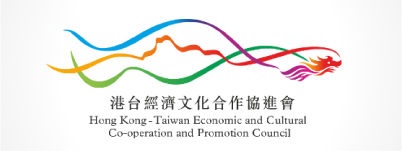Press Releases (1550)

主頁 > Press Releases (1550) - CMAB
| SCA: Unique solutions for unique region |
|
Following are the main points of a speech delivered by the Secretary for Constitutional Affairs, Mr Stephen Lam, at a Basic Law international conference this morning (June 22). Introduction "One Country, Two Systems" was a concept designed to resolve questions left over from history. This was put into practice in 1997 when the Government of the People's Republic of China resumed the exercise of sovereignty over Hong Kong. When the concept was first mentioned in the early 1990s, many cast doubts about its viability. Now, 10 years on since our reunification in 1997, foreign governments, international periodicals such as TIME Magazine and Hong Kong people have concluded that the concept works, and works quite well. Unique concepts require unique solutions. I would like to take today's opportunity to highlight to participants three unique features which have been designed to fit this unique region as part of China. Court of Final Appeal The autonomies granted to the Hong Kong SAR exceed those which provinces and states under a federal system can enjoy. Thus, Hong Kong is able to deal with its own external affairs, such as being a member of the World Trade Organization and concluding bilateral air service agreement. Canadian provinces and American states cannot do so. We also have the power of final adjudication. The Court of Final Appeal established on July 1, 1997 is the final appellate court for all court cases arising in Hong Kong. Court cases never go to Beijing for adjudication. It is rather unique for a non-sovereign region to have a Court of Final Appeal. In determining court cases, the Court of Final Appeal is the final arbitrator of Hong Kong legislation and Hong Kong common law. Also, in determining court cases, the Court of Final Appeal can interpret provisions of the Basic Law which are within the limits of the autonomy of the Hong Kong SAR. In the last 10 years, the Court has decided cases which cover about one-third of the provisions of the Basic Law. According to Article 158 of the Basic Law, the Standing Committee of the National People's Congress (NPCSC) holds the power of final interpretation on the Basic Law. However, any interpretation made by the NPCSC shall not affect judgments which have already been made by the Court of Final Appeal. This dichotomy between the power of final interpretation over the Basic Law and the power of final adjudication over court cases is again a unique arrangement made to suit Hong Kong's unique circumstances. This arrangement enables Hong Kong to exercise the maximum degree of autonomy in preserving judicial independence and enables Hong Kong common law to evolve. In 1999, we had to exercise both of these powers. The NPCSC issued an interpretation on Article 24 concerning right of abode for children born on the Mainland of China to Hong Kong people. The interpretation would be for future application. At the same time, to preserve the power of final adjudication of the Court of Final Appeal, we allowed several thousand claimants for right of abode who were related to the court's decision in January, 1999, to stay in Hong Kong. So both powers were respected. Since its inception in July, 1997, the Court of Final Appeal has been very well established and successful. We have the benefit of senior judges from the UK, Australia and New Zealand participating as Non-permanent Overseas Judges in our Court of Final Appeal. Their participation guarantees that Hong Kong's judicial system will continue to enjoy high international standing. Currently, the Court of Final Appeal deals about 100 court cases per annum, which is two to three times the caseload handled by the Privy Council before 1997. Thus, the common law and judicial independence thrive in Hong Kong. Cabinet-style Government Prior to 1997, Secretaries of the Hong Kong Government were all civil servants. To preserve continuity, this system was maintained following reunification. In 2002, we made a change. We adopted cabinet-style government by introducing a system of political appointments. Henceforth, Secretaries of the Hong Kong SAR Government are appointed on five-year terms i.e. co-terminus with the Chief Executive (CE) who nominates them for appointment. The Secretaries are also all appointed as Members of the Executive Council. Through this arrangement, Secretaries of the Government all subscribe to the principle of collective responsibility. Also, the Secretaries will assume political responsibility for the success or failures of their individual policy portfolios. This system has brought the design of Hong Kong's executive government closer to democratic governments around the world. We also have plans to create two more tiers of political appointments i.e. Under-Secretaries who can assist the Secretaries in speaking for the Government in our legislature; Political Assistants who can liaise with political parties and other bodies for the Secretaries. Our policy is to allow individuals with political party, civil service, business, professional and academic backgrounds to join our political team. Over time, this will allow the Hong Kong SAR Government to build up a political coalition with various political parties and other community organisations. The evolution of this system of political appointments demonstrates that while the Basic Law will remain unchanged for 50 years, it leaves us with enough room for evolving new arrangements and new institutions. Universal Suffrage Talking about new developments, I should mention that during the election of the Third Term CE in March, Mr Donald Tsang, as CE candidate, undertook to deal with the election of universal suffrage within the next five years i.e. between 2007 and 2012. We are committed to finding a set of answers for Hong Kong in terms of electoral methods, roadmap and timetable. To help us achieve this, we will issue a Green Paper on Constitutional Development soon after the establishment of the Third Term Government on July 1. We will conduct public consultation for three months and hope to engender consensus within the Hong Kong community. This is going to be a tall order. We hope to obtain 60% public support for any final package put forth. At the same time, such a package will require two-thirds majority support in the Legislative Council, the consent of the CE and the endorsement by the NPCSC in Beijing. So, we have several constitutional hurdles to cross. But I believe that if Hong Kong can deal with the historical challenge of reunification in 1997, we should well be able to deal with the issue of democratic development in 2007. If anyone can face up to this challenge, Hong Kong can! Ends/Friday, June 22, 2007 |





























